Shapes and Patterns: Comparing Tendai Makufa and Philippe de Kraan
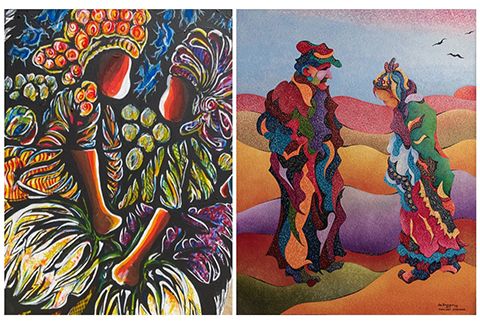
The other day I introduced you to the artist Philippe de Kraan and I was delighted with the positive feedback we got. Philippe captures, with the skill of the master painter he is, the undeniable effect patterns have on an image .
And regular blog followers will be very familiar with the marvellous paintings of Tendai Makufa who also is a magician at creating patterns.
Both images have two people, almost in mirror images, implying a strong relationship. Both images use strong colour to engage the viewer into the scene. And importantly for this post both paintings are constructed predominantly of patterns which bind the two figures harmoniously against a background which also (in both paintings) are patterned.
Do you also feel the rhythm especially in Tendai's painting? And ask yourself, Is there rhythm in Philippe's painting? Even though in both cases the figures are standing there is for me a movement entwined in the figures. I can feel and see breathing - in the Great Leaders I can feel the ripple of their muscles and the powerful strokes of centuries of traditions. The title alone in Twilight Serenade invites a gentle sway and an implied stepping forward and out to the music. And where is the music, the serenade? For me it is in the gentle patterns of the background of waves which embrace the couple.
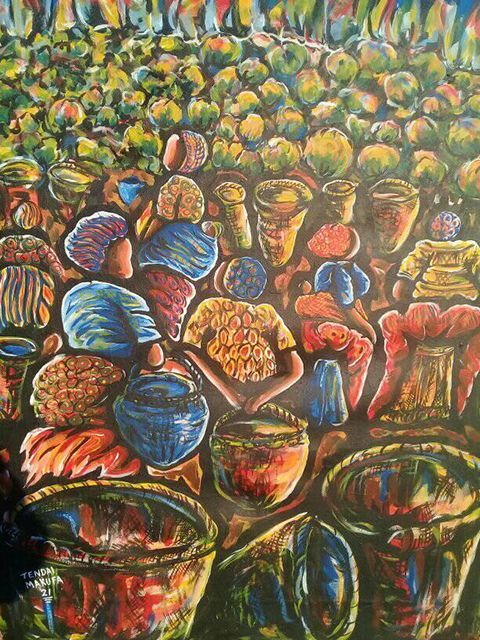
In the painting (above) Tendai has cleverly arranged to form horizontal patterns which diminish in size to enhance the perspective.
And in the paintings below take a little time to study carefully the repetition of the patterns in the women's clothing and the repetion of the shapes and colours of the produce.

And finally pattern through the repetion of line, shapes and colours has been used by Tendai in A Great Future (below) to achieve the harmony his paintings are known and loved for.
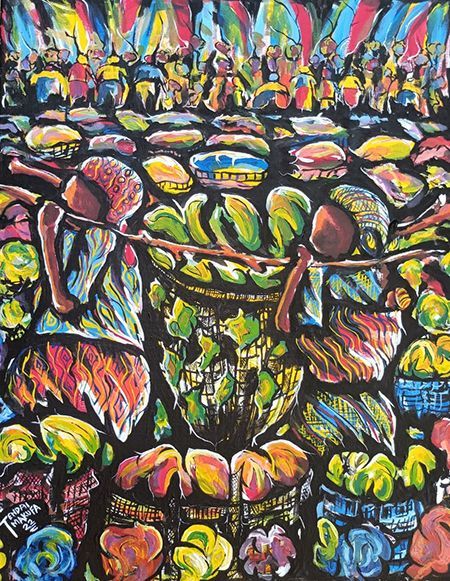
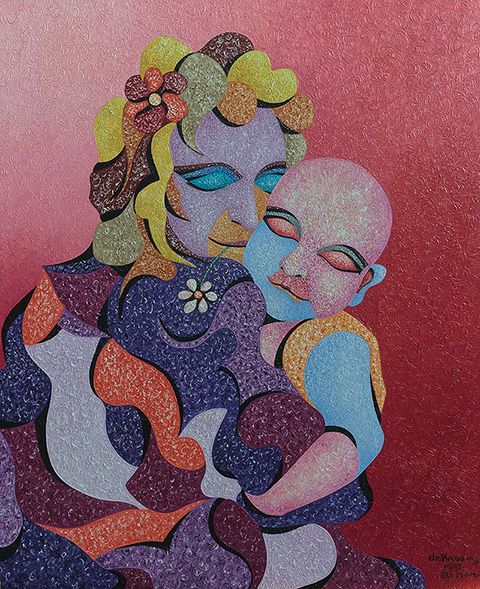
Many of Philippe's paintings are also known for having a textured look achieved through a form of pointillism.
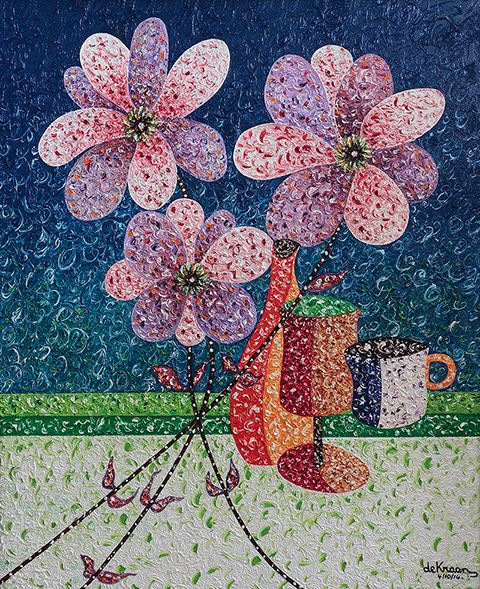
If you would like to know a little more about Pointillism please click on the button below.
And just how effective is the use of a textured finish in Artist City by Philippe de Kraan below. The repetition of the shapes of the boats and houses with their highlighted windows is enhanced by the textured overlay
I love everything about this pattern which is an excellent example of how a simple scene can come alive with the expert use of shape and pattern.
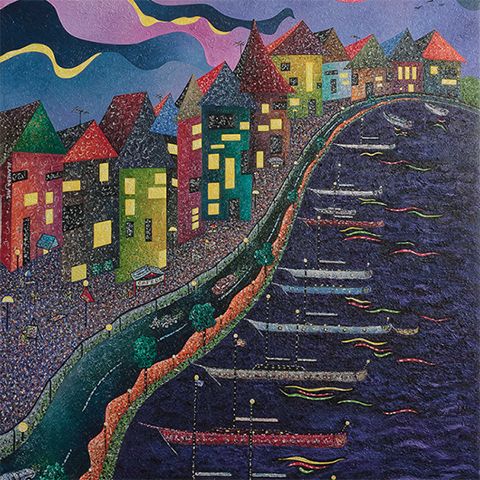
Tomorrow we are going to visit another of my most favourite artists whose use of line, shape and colour to form patterns is very different to those you have just seen but ... just as extraordinary.
